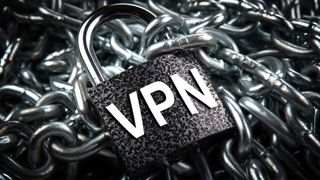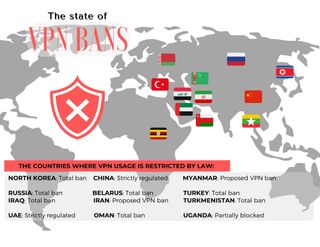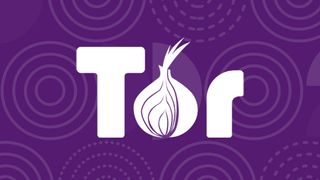Bypass VPN blocks and make yourself undetectable online
As VPNs are growing in popularity, so are the attempts to block their use

Whether you want to access restricted streaming content, bypass online censorship or simply browse more safely, a VPN is the tool you want to do this job. But, while the usage of this privacy software is growing in popularity across the world, so are the attempts to block them.
Virtual private network blocking actually refers to all the methods that prevent the use of VPN tunnels to access certain websites or content. From stringent government censorship to copyright matters or organisations' policy, your VPN can be restricted for several reasons.
The good news is that there are a few hacks you can use to make your VPN undetectable and evade those blocks. This means you will be able to use your service normally, no matter the limitations that are in place.
Here we'll explain everything you need to know about VPN blocking and what to do in case your VPN gets restricted.
Share your thoughts on Cybersecurity and get a free copy of the Hacker's Manual 2022. Help us find how businesses are preparing for the post-Covid world and the implications of these activities on their cybersecurity plans. Enter your email at the end of this survey to get the bookazine, worth $10.99/£10.99.
Why might a VPN get blocked?
As mentioned before, VPNs can be restricted for several reasons under different circumstances. Here are the most common scenarios.
1. School and workplace policies
Employers or even school administrators might prevent people accessing certain sites under their network. Social media can be blocked for productivity reasons, for example. These organisations may also want to access your traffic to make sure you do not perform any activities against their policies. As VPNs are used to bypass these blocks as well as hide your internet traffic, these services can be then banned using firewalls or other network filtering measures.
Are you a pro? Subscribe to our newsletter
Sign up to the TechRadar Pro newsletter to get all the top news, opinion, features and guidance your business needs to succeed!
2. Streaming restrictions
As Netflix, BBC iPlayer, Hulu and other platforms have their content geo-restricted, streaming VPNs are getting more and more popular among users that want to access their favorite programmes no matter where they are in the world. However, this is actually against these platforms' policies. That's why streaming services are trying hard to prevent their subscribers from connecting through a VPN.
3. Government censorship
It's not a secret that many countries use online censorship to limit the information their citizens can access. Take the Great Firewall of China, for example, where all the major social media like Facebook and Twitter are banned. Here, people are using China VPN services on a daily basis to bypass censorship and access censored sites. To prevent virtual private networks' usage, governments have developed sophisticated blocking tactics.
However, you should also bear in mind that in some countries using a VPN is actually against the law. These include Russia, Turkey and North Korea.

4. Copyright issues
Downloading files from the web - like movies, music, and games - can sometimes breach copyright terms. That's why people who want to hide their identity and torrent safely often connect through a torrenting VPN to do so. At the same time, these sites and copyright holders may try to block the use of VPNs to prevent illicit activities from occurring in the first place.
5. Fraud prevention
Sometimes websites that deal with money do not allow VPN usage. This can happen to prevent money laundering, for example. In this case, you may be unable to carry on your transactions if you’re connected to a VPN server. In some instances, you could even have your account locked simply for trying to do so.
These are the most common types of VPN blocks:
- Deep Packet Inspection (DPI): Commonly used also for internet shutdowns and sophisticated censorship tactics, DPI checks the data packets in transit to block access to encrypted metadata characterizing VPN traffic.
- IP blocking: One of the simplest VPN blocking tactic and highly used by streaming platforms, it blocks access to all the VPN's known IP addresses. These can be on a public list or simply linked to unusual activities - same IP being used for thousands of people, for example.
- Port blocking: A firewall has the ability to block certain ports, in this case specific those used by VPNs. This means that your service will be prevented from connecting to a server.
Tactics to bypass VPN blocks
1. Change server
The first thing you should do if your VPN gets blocked is trying to connect to another server. The good news is that all the top providers offer a wide range of servers dotted across the globe for you to choose from. Some services, like Surfshark, even offer an IP rotator feature that automatically change your IP address regularly.
2. Connect via an obfuscated server
Also known as 'stealth VPN', obfuscation technology allows you to hide the fact you're using a VPN. It may add a layer of encryption over your VPN traffic or scramble the data to make it unrecognizable to the algorithm. Many providers, like ExpressVPN and NordVPN, have obfuscated servers for this purpose. Some others have even devised their own tech, like Surfshark's Camouflage Mode and the Chameleon protocol from VyprVPN.
This feature is crucial for beating strict censorship, and It's also very easy to use. Just download and install your VPN app, look for the obfuscated servers list, connect to one and start browsing.
3. Get a dedicated/static IP address
A possibility to fight back against IP blocking preventing your VPN service from working as usual is connecting through a dedicated IP address. It will be less likely to be blocked as you will be the only user able to connect to it.
Several VPN providers - like NordVPN, Private Internet Access (PIA) and CyberGhost - offer dedicated IPs for an extra fee. Simply add the option to your account to claim your own.

4. Change port, encryption or tunnelling protocol
As the port used by VPNs are connecting to the security protocol and encryption used, switching to another option can help you bypass the block.
Doing so it usually very easy, directly from your VPN app - especially if you want to just switch protocol. For changing port or encryption, you may need to do this manually. Contact your VPN provider if you need any assistance for this - a great example of why having a quality support team on hand is essential.
5. Switch to mobile data
As mentioned before, in some instances the network itself is the one preventing VPN services to work - like your school Wi-Fi, for example. In this case, switching to your mobile data and/or connecting your device with your phone hotspot will be an effective and simple way to evade VPN blocking.
6. Create an SSL/SSH Tunnel
A more complicated method as it requires some manual configuration, creating either a SSL or SSH tunnel will help you making your VPN undetectable. These are indeed two common ways of routing your internet traffic over different types of encryption connections.
Also in this case, contact your VPN provider if you need any assistance. In the meantime, you can also check our explainer to learn more about VPN tunnels.

7. Use another security software instead
VPNs are not the only tools that can help you evade censorship, geo-restrictions and surveillance. So, if your VPN service get blocked, using another security software can be the right way to go.
Tor browser and its 'onion routing' technology can help you easily bypass IP blocking and/or deep packet inspections. Again, Shadowsocks is an open-source proxy application used to access censored websites in countries with sophisticated tactics. Also Psiphon is another open-source software largely employed for bypassing VPN blocks.
8. Try another VPN provider
If after trying all these methods your VPN doesn't work still, you should probably consider switching provider. You will be happy to know that all the most secure VPN services offer a minimum of 30-day money-back guarantee. So your money will be safe, at least.

Chiara is a multimedia journalist committed to covering stories to help promote the rights and denounce the abuses of the digital side of life—wherever cybersecurity, markets and politics tangle up. She mainly writes news, interviews and analysis on data privacy, online censorship, digital rights, cybercrime, and security software, with a special focus on VPNs, for TechRadar Pro, TechRadar and Tom’s Guide. Got a story, tip-off or something tech-interesting to say? Reach out to chiara.castro@futurenet.com
